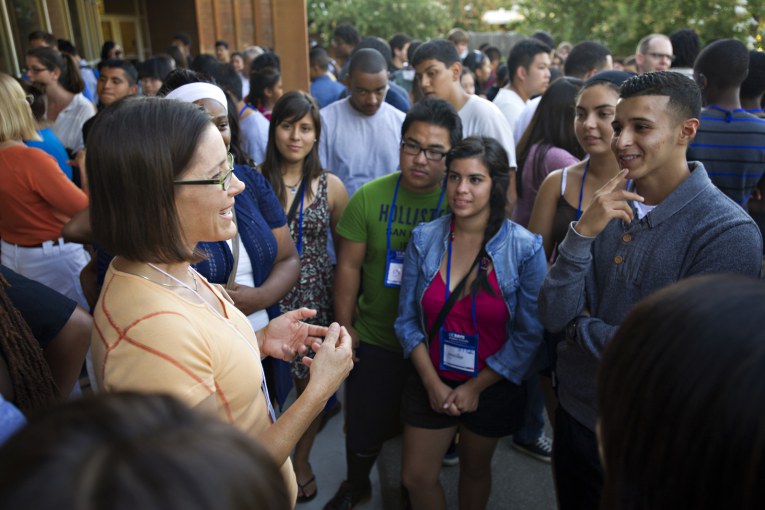

By Richard Scalettar
Recent articles and letters in support of Chancellor Katehi have praised her commitment to STEM education and to making UC Davis a Latino-serving institution. Changes that have been announced to the Special Transition Enrichment Program (STEP) at UCD call these claims into question.
STEP has served more than 5,000 Educational Opportunity Program (EOP) students, primarily Latino and in STEM fields, for four decades. In the month prior to beginning their full-time enrollment at UCD, STEP students receive academic advising, instruction in STEM disciplines, in writing, and a general introduction to campus and university expectations. As its name implies, STEP has served as a key program to provide a bridge for Latino STEM students to the university, and in building a community of Latino STEM scholars.
Although the exact balance of classes varies, STEP has traditionally offered about 20 hours per week of instruction in physics, chemistry, and mathematics. Under its new structure, STEP will be reduced from four to three weeks, and required courses in science will be eliminated. Mathematics will be offered only to a small fraction of participants. STEP will instead focus entirely on writing.
When these changes were first announced, faculty were concerned that language at UCD websites, “The main purpose of the STEP writing classes is to prepare international students to meet University writing standards”, might indicate an intent to convert STEP from a focus on EOP students to a program for international students. Although this language has since been removed, it seems clear that UCD has chosen a very significant reduction in its commitment to STEM EOP students.
The STEP website contains the following quote from a 2005 alumna: “I was prepared very well for my calculus, chem and physics classes, courses that tend to be the ones that weed people out of the major. Because of my participation in STEP, I was prepared for that challenge. I think if it wasn’t for STEP I wouldn’t have been so successful in school and I may have felt more isolated and lost.” It is too bad that stories like these will no longer be possible.
Interesting revelations here. At first I thought that the faculty was divided along the lines of the Humanities versus hard science, now it looks like that is appearance is only there because Katehi has seemingly more control over the hard science aspect.
Where are you getting this information? There is no evidence of any change on the STEP website or the University Writing Program.